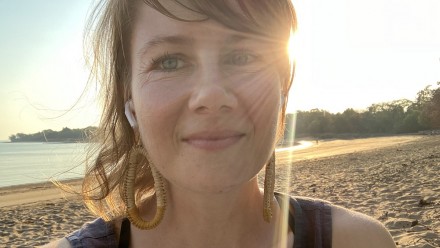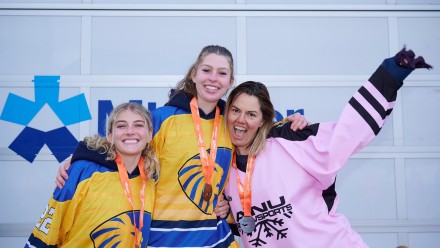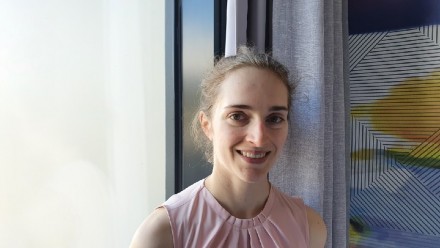Medical student takes out bioethics association’s best essay prize
Ms Margaret Palazzo, a year 3 medical student, has been awarded this year’s Australian Association of Bioethics and Health Law's (AABHL) Max Charlesworth prize for her essay The therapeutic misconception as a potential barrier to assent in early phase paediatric oncology research. She shares the award with Ms Serene Ong, a PhD student in NUS’ Centre for Biomedical Ethics.
Ms Palazzo’s research found that phase 1 clinical trials—which test the safety of new treatments—should require children who are mature enough to want to be involved in decisions about their healthcare to assent to their participation even if their age means that they cannot legally provide their informed consent.
“Many of these children almost certainly hold therapeutic misconceptions - that is, do not understand the key differences between trial participation and standard care - which may affect their ability to consider what is in their best interests.”
“When considering participation in phase 1 research, a child's 'best interests' can be complicated and may range from wanting to contribute to research that may help future children, wanting any chance of a cure, and wanting to avoid further medical procedures.”
“Therefore, actively addressing therapeutic misconceptions in these children is a valuable way of helping potentially vulnerable children who are considering participation in phase 1 clinical trials,” Ms Palazzo said.
Dr Nathan Emmerich, Ms Palazzo’s supervisor said “Margaret's essay was the result of her Phase 1 Independent Project within the Doctor of Medicine and Surgery program and whilst she undertook the work under my supervision, the project was very much her own from start to finish. This is reflected by the fact that her essay is eligible for this prize as a sole authored contribution. Given that PhD scholars who have studied bioethics for a number of years compete for this prize, demonstrates the high quality of Margaret’s work. She should be very proud.”
Although the Independent Project was the first time Ms Palazzo had undertaken research, she has always enjoyed writing and so research that revolved around ethical analysis seemed manageable and even gratifying given her interest in paediatric oncology and medical ethics.
“The topic I chose was initially beyond the scope of my knowledge in ethics, which meant I did a lot of extra reading around the subject to try and make up for gaps in my understanding. Dr Emmerich was a great support in helping me to decide on what aspect of research ethics in paediatric oncology I wanted to pursue, and helped provide feedback on my ideas and work as it developed.”
Ms Palazzo’s prize is expenses paid to attend the AABHL's Annual Conference in Hobart to present her work and receive her award.
“I feel very surprised and honoured to have received the award and somewhat daunted to be presenting my work to a room of experts. The conference coincides with my exams, so I will be doing Objective Structured Clinical Exams (OSCEs) in my hotel room each morning and rushing to the conference in the afternoon. I am hoping that presenting will seem easy compared to the OSCEs!”














